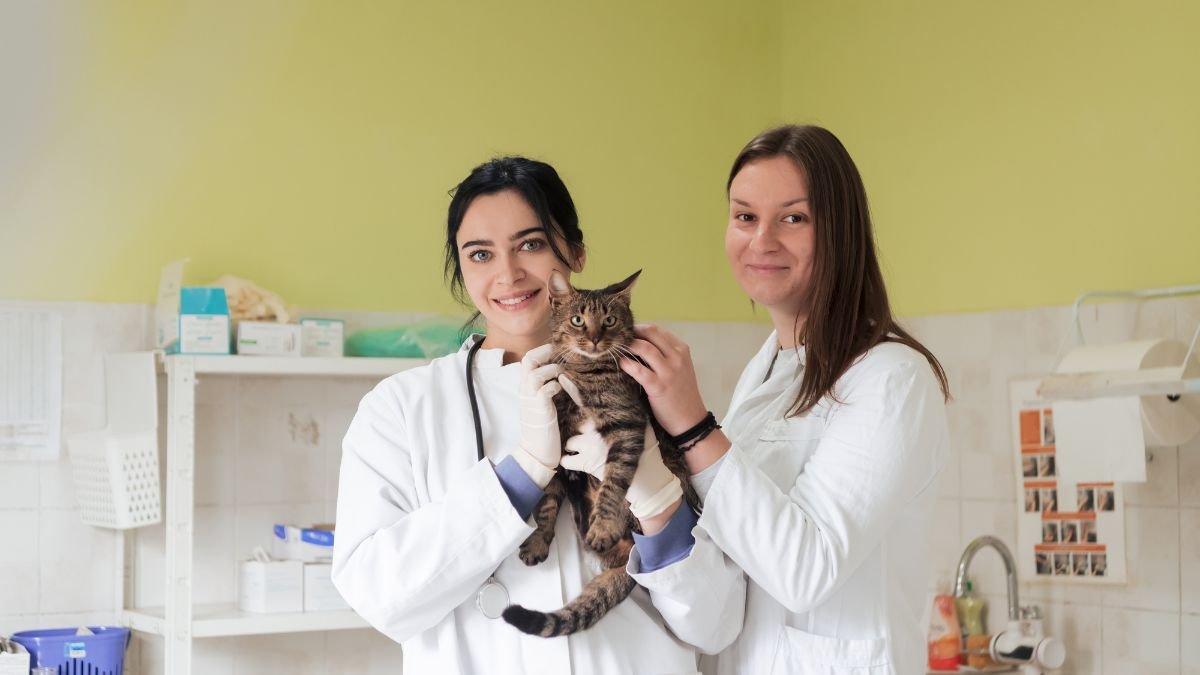
Every cat owner wants to give their feline companion the best possible care—and that often means preparing for the unexpected with cat insurance. Veterinary bills can appear suddenly, whether it’s an emergency surgery, a chronic condition, or even routine checkups that add up over time. But here’s the truth: the “best” plan isn’t the same for every cat. A senior cat managing arthritis will need a very different policy than a playful kitten who’s only had basic vaccinations. What matters most is choosing coverage that matches your cat’s unique stage of life and health profile.
Why Choosing the Right Cat Insurance Provider Matters
Selecting from the best pet insurance for cats can make the difference between smooth, stress-free care and frustrating delays. The right provider ensures you can focus on your cat’s recovery instead of worrying about paperwork or unexpected costs. Key factors to consider include:
- Monthly premium rates
- Coverage limits and exclusions
- Claim processing times
- Customer service quality
- Flexibility in policy options
These details aren’t just numbers—they directly affect how quickly and easily your cat can receive the care they need.
How We Compare Cat Insurance Plans
Our analysis goes beyond surface-level comparisons. We look at which policies work best for kittens just starting out, senior cats managing chronic conditions, and breeds predisposed to hereditary health issues. We break down:
- Reimbursement structures
- Annual maximums
- Waiting periods
- Optional wellness add-ons
Alongside expert insights, you’ll also find real customer experiences, ratings, and details on perks like instant claims, direct vet payments, and mobile app convenience—features that can make a stressful vet visit easier to handle.
Finding the Best Value for Your Cat
By exploring our cat insurance comparisons, you’ll gain the clarity to identify the best value for your household. Some cat owners prioritize low monthly premiums, while others prefer unlimited annual coverage for peace of mind. Certain policies may offer wellness add-ons for preventive care, while others focus on emergency protection. Whatever your priorities, our summaries are designed to save you time, money, and second-guessing—so you can focus on what really matters: keeping your cat healthy and happy.
When it comes to cat insurance, “best” is always relative. The most expensive plan isn’t automatically the most protective, and the cheapest option may leave you uncovered when you need help most. The best pet insurance for cats is the one that balances coverage, cost, and convenience for your specific situation. For some families, that means a comprehensive plan with wellness benefits; for others, it’s a leaner policy that still covers emergencies without straining the budget. What matters is that the plan fits your cat’s needs—and your household’s finances—so you can move forward with confidence knowing you’ve made a thoughtful choice.
Best Pet Insurance for Cats: 2025 Top Companies for Coverage and Peace of Mind
Choosing the right cat insurance is one of the most important financial decisions a cat owner can make. In this guide, we highlight five of the most trusted providers in the U.S., each recognized for their strengths in coverage, affordability, and flexibility. Instead...
Best Cat Insurance Policy in 2024: Protecting Your Cat’s Health and Your Peace of Mind
Choosing the right cat insurance is more than just a financial decision—it’s a commitment to your cat’s well-being and your own peace of mind. With veterinary costs rising and treatments becoming more advanced, pet insurance for cats can make the difference between...
Top Features That Define the Best Cat Insurance
When you’re evaluating cat insurance, the details matter. The strongest plans share a few defining features that can make all the difference when your feline needs care:
- Comprehensive Coverage: A reliable policy should cover accidents, illnesses, hereditary conditions, surgeries, diagnostics, and emergency care. Think of it as a safety net wide enough to catch the unexpected.
- Flexible Deductibles: Every household budget is different. The best insurers let you choose a deductible that balances affordability with protection.
- Customizable Reimbursement Rates: Most plans offer 70%, 80%, or 90% reimbursement. That flexibility helps you decide how much risk you’re comfortable carrying.
- Annual or Lifetime Coverage Limits: High or unlimited annual maximums provide peace of mind, especially if your cat develops a chronic condition.
- Short Waiting Periods: Quick activation is crucial, particularly for accidents or sudden illnesses where timing can’t wait.
- Transparent Exclusions: A trustworthy policy is upfront about what’s not covered—like pre-existing conditions or elective procedures—so there are no surprises later.
- Wellness Add-Ons: Preventive care options such as dental cleanings, vaccinations, and flea or tick prevention can be bundled in, keeping your cat healthier long-term.
- Fast Claims Processing: Mobile-friendly platforms and direct deposit options mean you’re not left waiting weeks for reimbursement.
Common Mistakes When Searching for the “Best” Cat Insurance
Even the most caring cat parents sometimes stumble when shopping for coverage. Here are the pitfalls to avoid:
- Focusing only on premium cost without checking what the plan actually covers.
- Skipping the exclusions section—many owners are caught off guard by rules around pre-existing or hereditary conditions.
- Underestimating future needs, especially if you’re insuring a kitten who may face chronic issues later in life.
- Assuming all plans are alike. They’re not—definitions, claim rules, and underwriting vary widely between providers.
Tailoring “Best” to Your Cat’s Age and Health
The right insurance depends heavily on your cat’s stage of life and health history.
For Kittens
- Enroll early to avoid exclusions tied to pre-existing conditions.
- Seek plans with wellness coverage for vaccines, spaying/neutering, and microchipping.
For Adult Cats (1–7 years)
- Prioritize illness and accident coverage.
- A mid-range deductible often works well for healthy but active cats.
For Senior Cats
- Look for policies that cover chronic and age-related conditions like arthritis, kidney disease, or diabetes.
- Lifetime condition coverage or generous annual maximums are especially valuable at this stage.
How to Compare and Identify the Best Plans
A thoughtful comparison process can save you both money and stress:
- Start with a Coverage Checklist: Write down the must-have benefits for your cat—emergency care, hereditary conditions, diagnostics, and surgery.
- Get Quotes from Multiple Providers: Premiums can vary depending on breed, age, and even location.
- Request a Sample Policy: Read the fine print carefully, especially around exclusions and reimbursement rules.
- Review Claim Procedures: The best insurers make it simple to upload claims online and process them quickly.
- Ask About Lifetime Value: Plans that continue covering chronic conditions year after year often provide better long-term protection than cheaper, short-term options.
How “Best” Relates to Premium Cost
The best pet insurance for cats isn’t necessarily the cheapest—it’s the one that delivers real value. A strong plan should:
- Fit comfortably within your monthly budget
- Protect you from overwhelming vet bills
- Cover both sudden emergencies and long-term health conditions
Saving a small amount on premiums won’t feel like much if your insurer denies a major claim when you need it most.
Look for the Best Plan for Multi-Cat Households
If your home is blessed with more than one cat, the right plan can simplify life and save money. Many insurers offer:
- Multi-pet discounts that reduce costs for each additional cat
- Consolidated billing and claims management
- Custom coverage per pet so each cat gets what they need
This way, your senior tabby and your energetic kitten both get tailored protection without juggling multiple providers.
Choosing the Best Cat Insurance Is About More Than Coverage
Coverage is critical, but usability matters too. Consider:
- Customer service reputation: When your cat is sick, you don’t want to be stuck on hold.
- Ease of online management: Look for simple tools for policy updates and claims.
- Direct vet payment options: Reduce out-of-pocket stress in emergencies.
- Mobile app availability: Quick, on-the-go claims can make a big difference.
A plan that looks great on paper but is slow to reimburse or difficult to manage won’t feel like the “best” when you need it most.
Define Your Own “Best”
There’s no universal best cat insurance—only the best fit for you and your feline. Maybe you value high reimbursement rates, or maybe a lower deductible gives you peace of mind. Some owners prioritize lightning-fast claims, while others want lifetime coverage for chronic conditions. At the end of the day, the best pet insurance for cats is the one that lets you say “yes” to care without hesitation. With the right policy in place, you’re not just protecting your wallet—you’re giving your cat the chance to live a healthier, happier life. And isn’t that what every cat parent really wants?
Next Steps
Exploring cat insurance is one of the most caring decisions you can make for your feline companion. To learn more about coverage options, common questions, and how to choose the right plan, visit our Cat Insurance FAQ.

